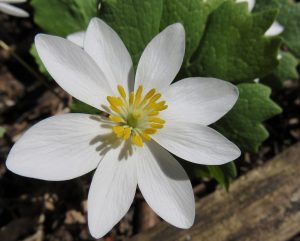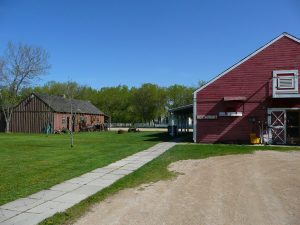Brief History of Kelowna
Situated in the Okanagan Valley, the vibrant and dynamic city of Kelowna has a rich and storied history, which makes it a more intriguing place to visit. The city’s name is derived from the Okanagan language word “Kelawnan”, which means “grizzly bear”. It was home to the indigenous Syilx people for thousands of years before the arrival of the European explorers in the 19th century.
Founded by Father Charles M. Pandosy in 1859, Kelowna was primarily a mission Mission Origins & Evolution Incorporated in 1892, Mission is a small, idyllic city in British Columbia, Canada. Its roots can be traced back to the establishment of St. Mary's Mission in 1861 by Father Fouquet. With abundant timberlands, the area started to develop significantly due to the forestry industry. The introduction of the Canadian Pacific Railway further fostered the city's... used to convert indigenous peoples to Christianity. In the late 1860s, the ranchers and gold prospectors started to settle in the area, and with time, the city became an important trade center for the region.
Mission Origins & Evolution Incorporated in 1892, Mission is a small, idyllic city in British Columbia, Canada. Its roots can be traced back to the establishment of St. Mary's Mission in 1861 by Father Fouquet. With abundant timberlands, the area started to develop significantly due to the forestry industry. The introduction of the Canadian Pacific Railway further fostered the city's... used to convert indigenous peoples to Christianity. In the late 1860s, the ranchers and gold prospectors started to settle in the area, and with time, the city became an important trade center for the region.
Geographical Location and Climate
Kelowna is the largest city in the Okanagan Valley and the third-largest metropolitan area in British Columbia. It is nestled in the southern part of the province, on the eastern shore of Okanagan Lake. The city is surrounded by provincial parks, pine forests, vineyards, orchards, and mountains.
The climate in Kelowna is classified as a humid continental climate. It has hot summers and cool, cloudy winters, with a high degree of seasonal variation in temperature. This unique climate allows for the cultivation of a wide range of crops and the production of award-winning wines.
Population and Demography
According to the 2021 census, Kelowna has a population of approximately 142,000 people. The city has a diverse demographic mix, with the majority being of European (primarily British) descent, augmented by a significant number of indigenous, south Asian, and east Asian residents.
The city is also home to a large community of retirees, attracted by the region’s mild climate, stunning landscapes, and high standard of living. There is also a considerable number of immigrants, primarily from the United Kingdom and the Philippines.
Founding of the City and Its Historical Development
Founded in 1859 by Father Charles Pandosy, Kelowna began as a mission for the conversion of indigenous peoples to Christianity. The town was officially incorporated in May 1905, with the arrival of the Canadian Pacific Railway. It developed primarily as a service centre for the surrounding agriculture and ranching communities.
Since its founding, Kelowna has evolved to become one of the fastest-growing cities in Canada. The city’s economy has diversified over time, with sectors like information technology, film, tourism, wine, and aviation having a significant presence.
Cultural Events and Festivals
Kelowna has a vibrant arts and culture scene, marked by various events and festivals that take place throughout the year. Every summer, the Kelowna Wine Country Half Marathon Kelowna Wine Country Half Marathon: Unraveling the Iconic Landmark Nestled in the picturesque Okanagan Valley, the Kelowna Wine Country Half Marathon stands tall as one of Canada's most iconic landmarks. With its historical significance, architectural beauty, and memorable experiences, this destination is a must for every adventurer's Canadian bucket list. Historical Significance: The roots of the Kelowna Wine Country Half... attracts athletes and spectators from all over the world.
Kelowna Wine Country Half Marathon: Unraveling the Iconic Landmark Nestled in the picturesque Okanagan Valley, the Kelowna Wine Country Half Marathon stands tall as one of Canada's most iconic landmarks. With its historical significance, architectural beauty, and memorable experiences, this destination is a must for every adventurer's Canadian bucket list. Historical Significance: The roots of the Kelowna Wine Country Half... attracts athletes and spectators from all over the world.
The Rotary Centre for the Arts Historical Significance of The Rotary Centre for the Arts The Rotary Centre for the Arts, located in the cultural district of downtown Kelowna, British Columbia, is a renowned cultural landmark that has been a part of Canada's artistic fabric since 2002. The centre stands as a testament to the country's commitment to cultivating a vibrant, rich, and diverse arts scene.... is a major hub for cultural activities in the city, hosting concerts, community theatre, exhibitions, and other events. The annual OCAC Artscape exhibition showcases the works of local artists across several galleries.
Historical Significance of The Rotary Centre for the Arts The Rotary Centre for the Arts, located in the cultural district of downtown Kelowna, British Columbia, is a renowned cultural landmark that has been a part of Canada's artistic fabric since 2002. The centre stands as a testament to the country's commitment to cultivating a vibrant, rich, and diverse arts scene.... is a major hub for cultural activities in the city, hosting concerts, community theatre, exhibitions, and other events. The annual OCAC Artscape exhibition showcases the works of local artists across several galleries.
Museums, Theaters, and Galleries
There is no shortage of museums, galleries, and theaters for visitors to explore in Kelowna. The Okanagan Heritage Museum A Journey through Time at the Okanagan Heritage Museum A visit to the Okanagan Heritage Museum propels you on a journey deep into the intriguing history of British Columbia. The museum, housed in the heart of Kelowna, offers a dramatic narration of the transformation this region has undergone. The visitors get a glimpse of the indigenous tribes, the fur trade... offers fascinating insights into the city’s local history. The Kelowna Art GalleryThe Historical Heritage of Kelowna Art Gallery Situated at the heart of the Okanagan Valley in British Columbia, the Kelowna Art Gallery stands as a significant historical edifice, forging a vital link between Canada's rich history and its vibrant cultural heritage. Established in 1976, this remarkable institution has been a thriving centre of artistry and creativity, stimulating engagement with visual..., one of the most respected public galleries in BC, features a diverse array of contemporary and historical exhibitions.
A Journey through Time at the Okanagan Heritage Museum A visit to the Okanagan Heritage Museum propels you on a journey deep into the intriguing history of British Columbia. The museum, housed in the heart of Kelowna, offers a dramatic narration of the transformation this region has undergone. The visitors get a glimpse of the indigenous tribes, the fur trade... offers fascinating insights into the city’s local history. The Kelowna Art GalleryThe Historical Heritage of Kelowna Art Gallery Situated at the heart of the Okanagan Valley in British Columbia, the Kelowna Art Gallery stands as a significant historical edifice, forging a vital link between Canada's rich history and its vibrant cultural heritage. Established in 1976, this remarkable institution has been a thriving centre of artistry and creativity, stimulating engagement with visual..., one of the most respected public galleries in BC, features a diverse array of contemporary and historical exhibitions.
For those who love theatre and music, the Kelowna Community Theatre A Brief History of Kelowna Community Theatre The Kelowna Community Theatre, one of the most prominent structures in downtown Kelowna, British Columbia, Canada, is a beloved historical venue that takes pride in its rich heritage. Since its inception in September 1962, it has served as an all-encompassing cultural hub, hosting countless events and performances. The theatre is also recognized as... and the Rotary Centre for the Arts offer a rich lineup of concerts, plays, dance performances, and other events.
A Brief History of Kelowna Community Theatre The Kelowna Community Theatre, one of the most prominent structures in downtown Kelowna, British Columbia, Canada, is a beloved historical venue that takes pride in its rich heritage. Since its inception in September 1962, it has served as an all-encompassing cultural hub, hosting countless events and performances. The theatre is also recognized as... and the Rotary Centre for the Arts offer a rich lineup of concerts, plays, dance performances, and other events.
Universities and Scientific Institutions
Kelowna is home to several universities and colleges, including the University of British Columbia The Historical Significance of University of British Columbia The University of British Columbia (UBC) holds a significant place in Canadian history, both as an institution of higher learning and as a landmark that showcases the country's architectural heritage. Established in 1908, UBC has grown to become one of Canada's top-ranked universities while preserving its historical charm. Walking through its grandiose..., Okanagan Campus (UBCO)
The Historical Significance of University of British Columbia The University of British Columbia (UBC) holds a significant place in Canadian history, both as an institution of higher learning and as a landmark that showcases the country's architectural heritage. Established in 1908, UBC has grown to become one of Canada's top-ranked universities while preserving its historical charm. Walking through its grandiose..., Okanagan Campus (UBCO) The Historical Significance of UBCO Established in 2005, The University of British Columbia's Okanagan Campus (UBCO) is a renowned post-secondary institution that holds a special place in the history of Canadian education. Just over a decade ago, UBCO expanded from its Vancouver roots, opening up a world of opportunity in the picturesque Okanagan Valley. Even though it's younger than other..., and Okanagan College
The Historical Significance of UBCO Established in 2005, The University of British Columbia's Okanagan Campus (UBCO) is a renowned post-secondary institution that holds a special place in the history of Canadian education. Just over a decade ago, UBCO expanded from its Vancouver roots, opening up a world of opportunity in the picturesque Okanagan Valley. Even though it's younger than other..., and Okanagan College Exploring Okanagan College: An Icon of Canada's Educational Landscape Tucked away in the charming British Columbian city of Kelowna, Okanagan College boasts a heritage dating back to 1963. The sprawling college commands an imposing view, overlooking serene Okanagan Lake and surrounded by majestic mountains. Its lush green surroundings breathe in an inspiring spirit of learning and camaraderie. The institution's rich....
Exploring Okanagan College: An Icon of Canada's Educational Landscape Tucked away in the charming British Columbian city of Kelowna, Okanagan College boasts a heritage dating back to 1963. The sprawling college commands an imposing view, overlooking serene Okanagan Lake and surrounded by majestic mountains. Its lush green surroundings breathe in an inspiring spirit of learning and camaraderie. The institution's rich....
UBCO offers a range of undergraduate and graduate programs and is known for its research in areas such as health and social development, materials and manufacturing, and earth and environmental sciences. Okanagan College specializes in business, health, trade, and technical training programs.
Libraries and Research Centers
The Kelowna branch of the Okanagan Regional Library The Historical Significance of Okanagan Regional Library The Okanagan Regional Library holds a special place in the hearts of Canadians, not just as a repository of knowledge but as a symbol of cultural heritage and community. Established in 1936, it is one of the oldest public libraries in Canada, tracing its roots back to the early pioneers who settled in... system is the largest in the region, providing literature, technology, and community spaces to local residents.
The Historical Significance of Okanagan Regional Library The Okanagan Regional Library holds a special place in the hearts of Canadians, not just as a repository of knowledge but as a symbol of cultural heritage and community. Established in 1936, it is one of the oldest public libraries in Canada, tracing its roots back to the early pioneers who settled in... system is the largest in the region, providing literature, technology, and community spaces to local residents.
UBCO Campus holds The Innovation Library, a joint project between the Okanagan Regional Library and UBC Okanagan Campus Library. The UBCO Innovation Library supports student learning, facilitates faculty research, and provides opportunities for community engagement.
Significant Landmarks and Monuments
Among the most notable landmarks in Kelowna are the Okanagan Lake Bridge Unveiling the Historical Significance The Okanagan Lake Bridge, also known as the William R. Bennett Bridge, holds a distinguished place in Canadian history. Constructed in 2008, this architectural marvel spans the enchanting waters of Okanagan Lake in British Columbia, connecting the charming cities of Kelowna and West Kelowna. Its historical significance lies in its role as a symbol of connectivity,..., the Giant Peach, Kasugai Garden Park
Unveiling the Historical Significance The Okanagan Lake Bridge, also known as the William R. Bennett Bridge, holds a distinguished place in Canadian history. Constructed in 2008, this architectural marvel spans the enchanting waters of Okanagan Lake in British Columbia, connecting the charming cities of Kelowna and West Kelowna. Its historical significance lies in its role as a symbol of connectivity,..., the Giant Peach, Kasugai Garden Park Unveiling the History of Kasugai Garden Park Steeped in remarkable history and cultural significance, the Kasugai Garden Park conceals a story of friendship and goodwill between nations. Established in 1987, this tranquil oasis commemorates the twin city relationship between Kelowna, Canada, and Kasugai, Japan. Its inception aimed to create a serene spot that symbolizes the peaceful alliance and respect between..., and the many vineyards throughout the region. The city’s Historic Mission District offers a taste of early Okanagan life with its preserved heritage buildings and historic sites.
Unveiling the History of Kasugai Garden Park Steeped in remarkable history and cultural significance, the Kasugai Garden Park conceals a story of friendship and goodwill between nations. Established in 1987, this tranquil oasis commemorates the twin city relationship between Kelowna, Canada, and Kasugai, Japan. Its inception aimed to create a serene spot that symbolizes the peaceful alliance and respect between..., and the many vineyards throughout the region. The city’s Historic Mission District offers a taste of early Okanagan life with its preserved heritage buildings and historic sites.
Parks, Gardens, and Open Spaces for Recreation
Kelowna offers a variety of parks and natural spaces for outdoor enthusiasts. The City Park A Monumental Journey Through Time This Canadian beacon of historical significance, City Park, invites visitors into the heart of its rich legacy. While enjoying a panoramic embrace of lush landscapes surrounded by urbanized modernity, it's easy for one to downfall into a welcoming sense of timelessness. Originally constructed in the late 19th century, City Park serves as a testament to..., located downtown, features a beach, picnic areas, a skateboard park, and water park.
A Monumental Journey Through Time This Canadian beacon of historical significance, City Park, invites visitors into the heart of its rich legacy. While enjoying a panoramic embrace of lush landscapes surrounded by urbanized modernity, it's easy for one to downfall into a welcoming sense of timelessness. Originally constructed in the late 19th century, City Park serves as a testament to..., located downtown, features a beach, picnic areas, a skateboard park, and water park.
Knox Mountain Park Historical Significance of Knox Mountain Park Nestled in the distinct cityscape of Kelowna, British Columbia, stands the breathtaking Knox Mountain Park. This hidden gem harbors a rich historical tapestry that dates back to the indigenous peoples, the Syilx/Okanagan nation. It was a location of immense importance to them, offering a bounty of natural resources. Today, this mountain park serves as..., the city’s largest natural area park, offers multiple trails and spectacular panoramic views of the city and Okanagan Lake. Mission Creek Regional Park
Historical Significance of Knox Mountain Park Nestled in the distinct cityscape of Kelowna, British Columbia, stands the breathtaking Knox Mountain Park. This hidden gem harbors a rich historical tapestry that dates back to the indigenous peoples, the Syilx/Okanagan nation. It was a location of immense importance to them, offering a bounty of natural resources. Today, this mountain park serves as..., the city’s largest natural area park, offers multiple trails and spectacular panoramic views of the city and Okanagan Lake. Mission Creek Regional Park The Historical Significance of Mission Creek Regional Park Named after the Mission Creek that gently flows through its landscapes, Mission Creek Regional Park has stood as a silent witness to the evolution of Canada's history. The Yukon natives were its first frequenters, relying on its resources for sustenance and survival. These indigenous people called it Ta’tla Mun, which translates to... is another favorite, providing opportunities for hiking, biking, wildlife viewing, and fishing.
The Historical Significance of Mission Creek Regional Park Named after the Mission Creek that gently flows through its landscapes, Mission Creek Regional Park has stood as a silent witness to the evolution of Canada's history. The Yukon natives were its first frequenters, relying on its resources for sustenance and survival. These indigenous people called it Ta’tla Mun, which translates to... is another favorite, providing opportunities for hiking, biking, wildlife viewing, and fishing.
Public Transportation and Transportation Infrastructure
Public transportation in Kelowna is provided by BC Transit, which operates several bus routes throughout the city. The city is also served by major provincial highways and local roads, making it an easily accessible destination by car. Bike lanes and trails are available for cyclists.
Airports, Rail and Bus Stations
Kelowna International Airport A Iconic Landmark with a Rich History Kelowna International Airport, located in the stunning Okanagan Valley of British Columbia, is undeniably one of Canada's most iconic landmarks. Steeped in history, this airport has played a pivotal role in connecting the region to the rest of the world for over seven decades. Its establishment in 1946 marked a turning point for... is the largest airport serving the region, offering flights to major Canadian cities, as well as some U.S. and international destinations. Although passenger rail service has been discontinued, bus service is available between Kelowna and other major cities in the region.
A Iconic Landmark with a Rich History Kelowna International Airport, located in the stunning Okanagan Valley of British Columbia, is undeniably one of Canada's most iconic landmarks. Steeped in history, this airport has played a pivotal role in connecting the region to the rest of the world for over seven decades. Its establishment in 1946 marked a turning point for... is the largest airport serving the region, offering flights to major Canadian cities, as well as some U.S. and international destinations. Although passenger rail service has been discontinued, bus service is available between Kelowna and other major cities in the region.
Stadiums and Sports Facilities
Kelowna boasts impressive sports facilities. Prospera Place The Historical Significance of Prospera Place Built in 1999, Prospera Place has quickly become one of Canada's most iconic landmarks. Located in Kelowna, British Columbia, this state-of-the-art entertainment complex holds a special place in the hearts of both locals and visitors alike. Its historical significance is twofold; not only does it represent a milestone in the city's growth, but it..., a 6,000-seat multi-purpose arena, is home to the Kelowna Rockets of the Western Hockey League. Apple Bowl stadium
The Historical Significance of Prospera Place Built in 1999, Prospera Place has quickly become one of Canada's most iconic landmarks. Located in Kelowna, British Columbia, this state-of-the-art entertainment complex holds a special place in the hearts of both locals and visitors alike. Its historical significance is twofold; not only does it represent a milestone in the city's growth, but it..., a 6,000-seat multi-purpose arena, is home to the Kelowna Rockets of the Western Hockey League. Apple Bowl stadium Historical Significance of Apple Bowl Stadium Steeped in enduring grandeur and rich historical value, the Apple Bowl stadium houses numerous stories within its boundaries. Constructed in the heart of Kelowna, British Columbia in the 1980s, this landmark has served as the nucleus for many sporting and cultural events, becoming an integral part of the city's fabric. Since its inception, the..., a multi-purpose stadium, hosts football games, track and field events, and concerts.
Historical Significance of Apple Bowl Stadium Steeped in enduring grandeur and rich historical value, the Apple Bowl stadium houses numerous stories within its boundaries. Constructed in the heart of Kelowna, British Columbia in the 1980s, this landmark has served as the nucleus for many sporting and cultural events, becoming an integral part of the city's fabric. Since its inception, the..., a multi-purpose stadium, hosts football games, track and field events, and concerts.
Conclusion
In conclusion, Kelowna, a city rich in culture and history, offers a unique mix of urban living and outdoor exploration, due to its idyllic natural settings. Its vibrant arts scene, award-winning vineyards, and year-round outdoor activities make the city a standout gem in the Okanagan Valley.
From its historical and cultural attractions to its scenic landscapes, Kelowna leaves little to be desired for those seeking a diverse and enriching travel experience.
Attractions & Landmarks
- Kelowna Wine Country Half Marathon
- Rotary Centre for the Arts
- Okanagan Heritage Museum
- Kelowna Art Gallery
- Kelowna Community Theatre
- University of British Columbia, Okanagan Campus (UBCO)
- Okanagan College
- Okanagan Regional Library
- Okanagan Lake Bridge
- Giant Peach
- Kasugai Garden Park
- City Park
- Knox Mountain Park
- Mission Creek Regional Park
- Kelowna International Airport
- Prospera Place
- Apple Bowl stadium









